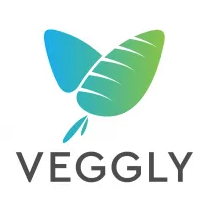Check out these amazing tips and learn more about vegan nutrition
The fitness world is one that has long been dominated by people who advocate that eating animals is the best way to build muscle. Vegan nutrition is here to change this.
Although it is easy to buy into the science of why we should be eating meat if we want to bulk up, it is not necessarily true. Fortunately, this is a myth that is being increasingly debunked within the industry.
Thanks to plant-based fitness pioneers, such as Patrik Baboumian, Torre Washington, and Jon Venus, the idea of bodybuilding on a vegan diet is becoming much more widely accepted and understood.
“As a transgender vegan working within the fitness industry, I regularly come up against opinions and attitudes that conflict with my own lived experiences. When it comes to talking about vegan nutrition, this is a topic that I have found to be particularly delicate to navigate with clients and other professionals. The balance between offering the best-personalized advice that does not conflict with my beliefs has occasionally been a fine line to tread.”
Protein, Protein, Protein
The idea that we all need to be drastically increasing our protein intake to build muscle is one that I definitely feel has been slightly exaggerated. This is something that some people working within the industry are guilty of perpetuating, as well as those who seek to sell protein-packed products to fitness enthusiasts.
When you consider that the global protein powder industry is expected to be worth $30.5 billion by 2027, then it is not really difficult to understand why this marketing message is so commonplace.
The truth of the matter is that the average person who is not exercising will generally only need to consume 0.8g of protein per kilogram of bodyweight each day.
This amount should be increased if you are very active or consciously trying to build muscle and get stronger. Towards the highest end of the scale, a person who is going to the gym to lift weights regularly should eat as much as 2g of protein per kilogram of bodyweight every day.
So, what does this actually look like?
For me as someone who weighs 60kg, if I was not exercising, I would aim to consume 48g of protein a day.
Since I lift weights four to five times a week, I have increased this number to 1.5g per kg, which means I aim to get 90g of protein in my diet every day.
For me, this is not really an outrageous amount of protein, but will of course differ depending on how much you weigh.
By dividing this protein up with each meal throughout the day, you can ensure that it is always a manageable and reasonable amount to include.
If you are wondering just how simple it is to get a decent amount of protein, consider as an example that just two tablespoons of peanut butter contains around 8g of protein, which is the same amount of protein you will get from a cup of quinoa.
For easy ways to add more plant-based protein to your diet, include:
- Tofu
- Seitan
- Tempeh
- Edamame
- Lentils
- Chickpeas
- Nuts
- Quinoa
You can also find fantastic vegan protein powders to supplement with a shake after every workout. I absolutely love the Huel Black Edition for this very reason, as it allows me to make sure I always have a decent dose of protein. Black Edition Huel has more protein and less carbs than the typical product, so it is perfect for building muscle.
What About Creatine?
Creatine is a supplement that is used to improve athletic performance. It has the potential to boost strength and promote muscle gain.
Dietary creatine is found almost exclusively in animal meat, so it is especially beneficial and advisable for vegan gym goers to supplement it. However, it should also be noted that creatine is actually present in very low levels in meat, and it is therefore advantageous for everyone to include it as a supplement.
More than 700 human studies have taken place to investigate the safety and efficacy of creatine, with results highlighting that it is both safe and effective.
So, how much creatine do you need?
Adding 5g of creatine to your diet every day is a universally decent amount. Personally, I make myself a litre bottle of orange squash every morning and add my creatine powder into that. I will then drink this throughout the morning before heading to the gym later in the day. You can also add your creatine to your protein shake, or simply to water.
In terms of timing, it does not really matter when you take your creatine as long as you aim for 5g every day.
A Varied and Balanced Diet for proper vegan nutrition
In order to reach your fitness goals in the gym, it is so important that you pay attention to what you are eating.
It is equally important to remember that following a vegan diet does not automatically mean you are always adhering to a healthy diet. This is such a common misconception due to some people with little experience of plant-based eating tending to have a distorted idea of what vegans actually eat.
Luckily for those of us with a sweet tooth, there is an endless range of vegan junk foods on the market today, such as ice cream, chocolate, sweets, ready meals, processed fast foods etc. While this is good news for our taste buds, it can make eating well all the more difficult because there is so much temptation.
Personally, I’ll choose chocolate over getting ripped abs any day. I believe it’s important to enjoy food and not to demonise specific food groups or choices. However, this is something that I understand I have to enjoy in moderation if I do not want to sabotage my training overall.
For those people who are looking to make a serious start with getting fit and working out, eating a diet that prioritises healthy foods is going to be a good move.
This means more plant-based proteins, more fresh fruit and vegetables, eating complex carbohydrates instead of simple ones, and eating healthy fats while avoiding saturated fats.
Nutrition can be a confusing topic to delve into, but it can be made simpler by choosing to eat foods that ARE ingredients, instead of eating foods that HAVE ingredients.
What do I mean by this?
Basically, any food item that you can enjoy in its whole form, such as fresh fruit, fresh veggies, grains, nuts, or seeds, is an ingredient. These are foods that we can generally all safely enjoy more of.
Foods that come in a packet with a long list of ingredients on the back are more likely to be high in calories, high in saturated fat, high in refined sugar, and also potentially packed full of any number of chemical additives that can cause chaos in the body.
Get Enough Calories
If you are following a healthy plant-based diet, then you might find that you do not always get enough daily calories to support your fitness goals. This is especially likely to be the case if you are following a low-carb plant-based diet.
When you are trying to build muscle then you will need to make sure you are eating enough. The specific number of calories that you need will depend on a number of different factors, such as your body composition, how active you are during each day, and how hard you are training.
Can an app help?
Using an app to track your food is certainly not for everyone and is something I would never recommend for people who have experienced disordered eating. However, for people who struggle to eat enough during the day, food tracking apps can help you to stay on top of this.
By tracking everything you eat, you can not only conquer your calorie needs, but also ensure you are getting the right mix of macronutrients (carbohydrates, fat, and protein).
I find that this is a helpful thing to do for a few days every month, just to make sure that food goals are more or less being achieved.
If you do not want to use an app to track your food, then you might try following a food plan that has been specifically designed for your individual requirements.
Getting Started
If you are recently getting started with a new gym regime or are keen to embark upon one, it is important to ease into it gently. Allow your body the time it needs to adapt to a new exercise plan and be sure to take adequate rest days in between workouts.
When it comes to your vegan nutrition, making small changes is always going to be much more sustainable than switching your entire diet all at once. So, evaluate your current eating habits and then begin with one positive change at a time.
“In terms of my own fitness journey as an ethical vegan, it was incredibly important to me to find ways to eat to support my fitness goals without compromising on my morals. Fortunately for me, and for everyone else who is vegan for the animals, it is actually quite easy to do this!”
Author bio
Alix Coe is a non-binary/trans-masc personal trainer working with the queer community globally. Alix is vegan for the animals, and they are excited to encourage body positivity, vegan nutrition and plant-based eating through their fitness work. Alix lives on their boat by the sea in Brighton, UK, with their gorgeous dog Lex.
To learn more about what they are up to, and vegan nutrition head to their website – www.coefitness.com.





